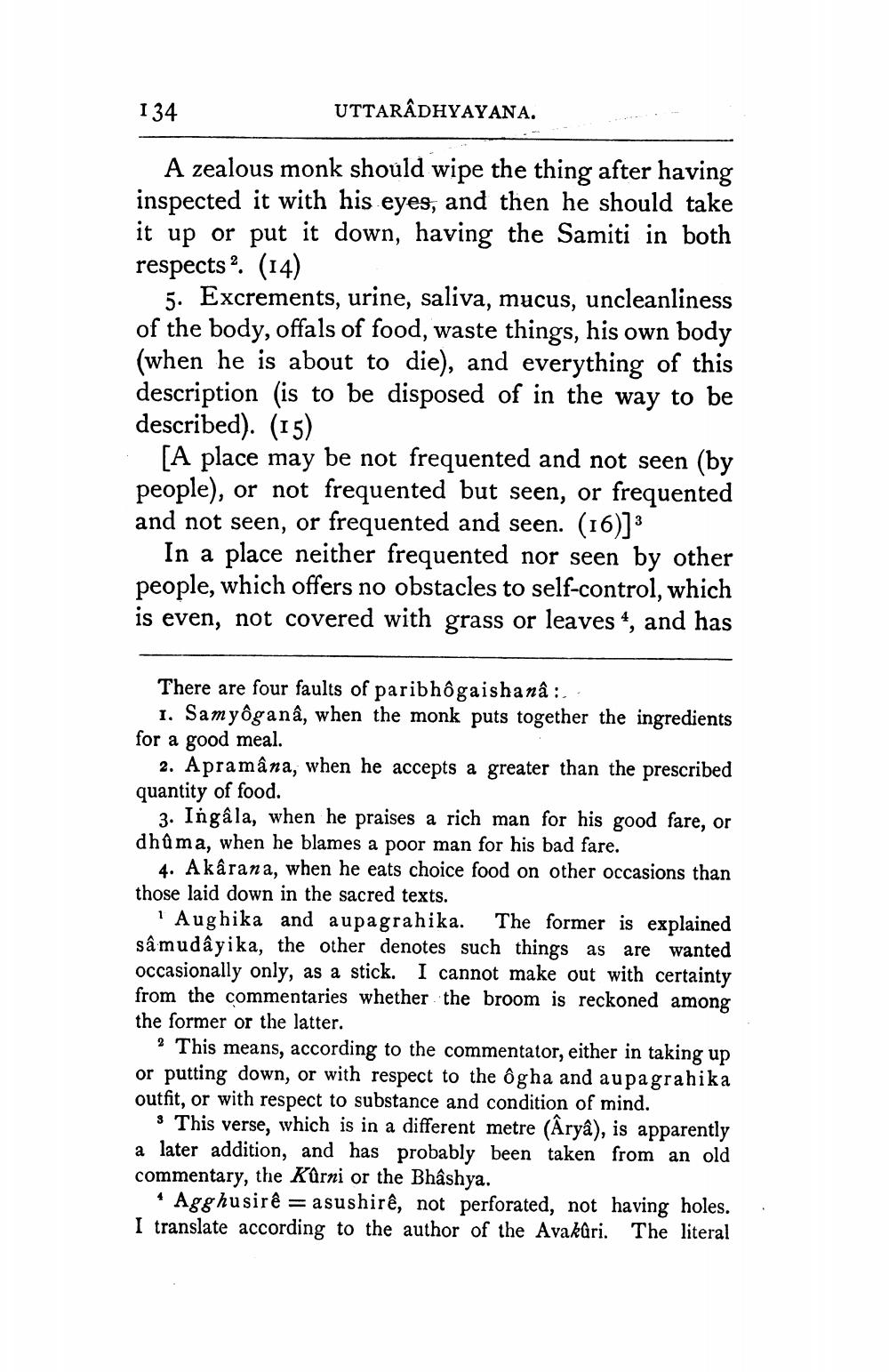________________
134
UTTARADHYAYANA.
A zealous monk should wipe the thing after having inspected it with his eyes, and then he should take it up or put it down, having the Samiti in both respects? (14)
5. Excrements, urine, saliva, mucus, uncleanliness of the body, offals of food, waste things, his own body (when he is about to die), and everything of this description is to be disposed of in the way to be described). (15)
[A place may be not frequented and not seen (by people), or not frequented but seen, or frequented and not seen, or frequented and seen. (16)]3
In a place neither frequented nor seen by other people, which offers no obstacles to self-control, which is even, not covered with grass or leaves 4, and has
There are four faults of paribhôgaisha na :
1. Samyôganâ, when the monk puts together the ingredients for a good meal.
2. Apramâna, when he accepts a greater than the prescribed quantity of food.
3. Ingâla, when he praises a rich man for his good fare, or dhûma, when he blames a poor man for his bad fare.
4. Akârana, when he eats choice food on other occasions than those laid down in the sacred texts.
1 Aughika and aupagrahika. The former is explained sâ mudayika, the other denotes such things as are wanted occasionally only, as a stick. I cannot make out with certainty from the commentaries whether the broom is reckoned among the former or the latter.
? This means, according to the commentator, either in taking up or putting down, or with respect to the ôgha and au pagrahika outfit, or with respect to substance and condition of mind.
3 This verse, which is in a different metre (Arya), is apparently a later addition, and has probably been taken from an old commentary, the Kûrni or the Bhashya.
• Agghusirê=asushire, not perforated, not having holes. I translate according to the author of the Avakäri. The literal




